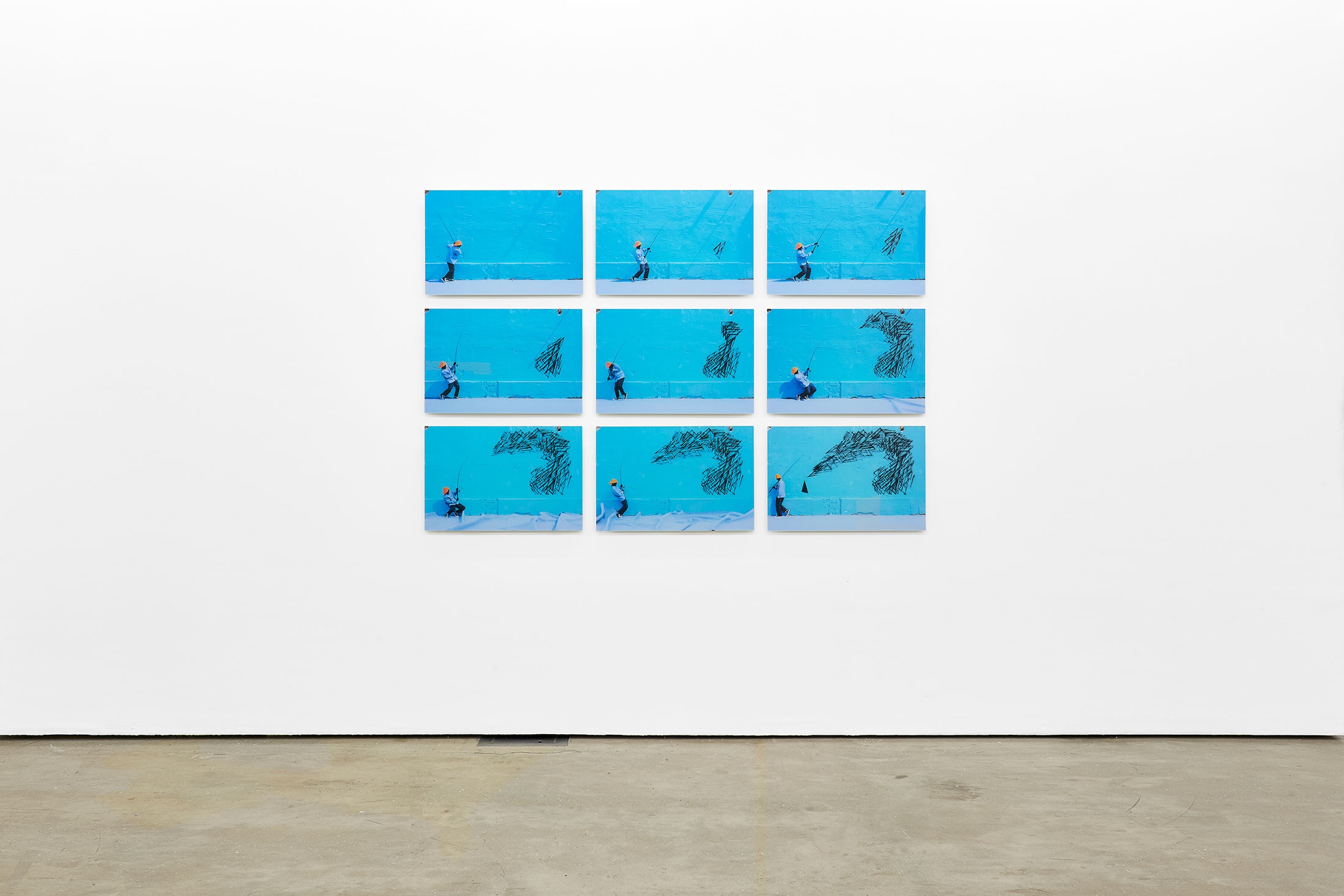Robin Rhode

In School of Fish, a series of nine photographs, minimal visual cues become effective narrative prompts. With only a single recurring form – a black triangle – Rhode evokes a moving shoal of fish. A performer plays the part of fisherman, with rod and backwards cap, orange against the wall’s blue. In offering only the barest suggestion of a scene, Rhode invites the viewer to suspend disbelief, to further furnish the imaginary event as it plays out against the side-street storyboard. As with all his ‘road works’, there is to this series a striking formal clarity. Here, the performer becomes compositional element, offers their body as another line drawn on the urban canvas.
b.1976, Cape Town
In all Robin Rhode’s work, line is primary – as formal device, as progression, as narrative structure. With the simplest propositions, he gives expression to imagined scenes. His work more often persists as document, the original offering only transitory. In charcoal, chalk and paint, Rhode creates sites of engagement within the city. The sidewalk becomes stage; an actor, always anonymous, appears. A series of photographs are taken, a stop-frame animation is made. Performance, drawing, photograph – the resulting works are all these mediums distilled to image, be it static or moving. The scene is later painted over; the actor departs; the set returns to inner-city wall. Largely produced in Rhode’s native Johannesburg, the works’ political implications are apparent, touching on such issues as urban poverty and violence, street culture and its aspirations. Rhode, however, considers himself more a formalist than social messenger, an artist concerned with mimesis – with art’s illusion – and the many tensions between image and object; the two-dimensional and the three-dimensional, represented and real. This is particularly true of his more recent work, which pairs both colour theory and geometry with the performing body.